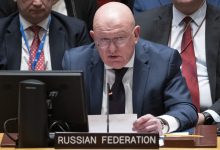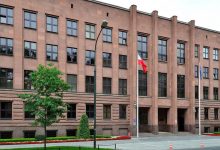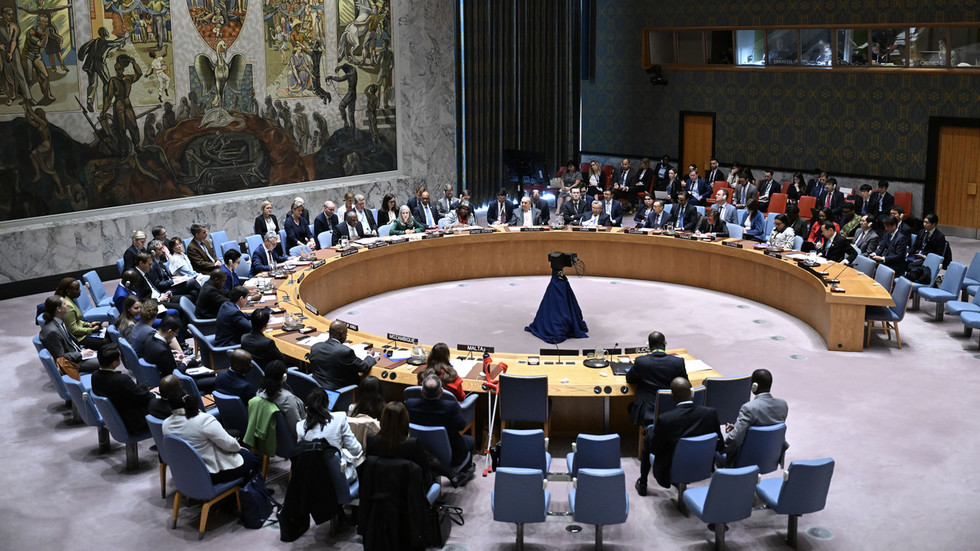
With the inauguration of Donald Trump as US president, the question of possible decisions by a new administration in regard to the crisis in Sudan arises
By Mohammed AbdAlwahid Mohammed Hussain, teaching assistant of political science, Financial University under the Government of the Russian Federation
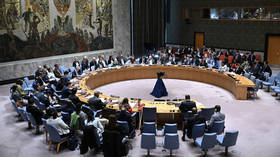
FILE PHOTO. UNSC votes on UK-Sierra Leone draft resolution calling on Sudan army and RSF to comply with Jeddah Declaration in New York on November 18, 2024. © Fatih Aktas/Anadolu via Getty Images
The incoming Trump administration’s involvement in regional crises, particularly in conflict zones such as Palestine, Lebanon, and Sudan, raises questions. During Joe Biden’s presidential term, the US Congress demonstrated significant interest in Sudan, although the nature of this involvement remains unclear. However, the US special envoy to Sudan, Tom Perriello, did not visit until recently – despite his numerous trips to other countries in the region during his eight-month tenure.
Biden’s administration did not provide much for Sudan, but rather pursued a policy that can only be described as always against the interests of the Sudanese state – and an extension of the plan to divide Sudan by supporting one party to the conflict (RSF, Rapid Support Forces) over the other (SAF, Sudanese Armed Forces).
What to expect from Trump?
Trump’s policy appeared to emphasize sidelining multilateral institutions, such as the African Union, which he viewed as ineffective in addressing the conflict in Sudan. Reports from the United Nations suggested that the rebellion in Sudan was ostensibly supported by the United Arab Emirates, further complicating the situation. In response, the Trump administration shifted its regional strategy to form alliances with specific countries, including Saudi Arabia, Egypt, and Qatar, to manage the Sudan conflict. This approach marked a departure from relying on broader international frameworks to address the crisis.
It is expected that these countries will have pivotal roles in the region and will increase their influence in light of future US policy developments. The Trump administration’s approach in his first term relied on three main axes that are expected to be pursued in the same way: strengthening relations with African countries and competing with China and Russia in the region; ensuring the effectiveness of US aid by reducing ineffective spending; and combating extremism and radicalisation.
The new administration in the White House will probably seek to engage in the Sudan crisis, and one of the most important incentives for this path lies in following up on what has been achieved within the framework of the Abraham Accords – the agreements normalising relations between Israel and Arab nations.
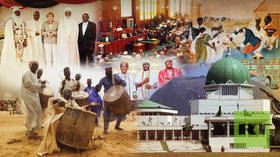
Read more
It might be expected that the pace of international pressure will increase. Recall that Trump announced during his election campaign that the issue of stopping wars is a primary goal for him, but it is not expected that Trump will support any trend of international intervention. On the other hand, it can be considered that the Democrats and Republicans in America are two sides of the same coin, agreeing on the goal and strategy but differing in tactics. The goal is the same – dividing Sudan.
The US previously played a significant role in Sudan’s political landscape, particularly concerning the secession of South Sudan for easier control over its resources. In 2005, the US was instrumental in brokering the Comprehensive Peace Agreement (CPA). This agreement granted southern Sudan the right to a referendum on independence, leading to the creation of South Sudan as a sovereign nation on July 9, 2011.In summary, while the US played a pivotal role in facilitating South Sudan’s independence, characterising this involvement as a deliberate strategy to divide Sudan oversimplifies the complexities of US foreign policy objectives in the region.
The Russian veto to the British plan
Following Russia’s veto last November, the UN Security Council failed to adopt a resolution on Sudan, demanding that the two warring sides of the conflict, SAF and the RSF, respect and fully implement their commitments in the Jeddah Declaration on the protection of civilians, including taking all feasible precautions to avoid and minimise harm to civilians, a draft resolution supported by 14 Security Council members and opposed only by the Russian delegate, attracting strong criticism from the US and UK delegates.
Russia’s use of the veto has recalled its use of the veto 16 times in favour of Syria since the outbreak of the crisis in 2011, including 10 times with Chinese participation.
The British draft resolution, which Russia used the veto against,sought to introduce international forces into Sudan without the consent of the Sudanese authorities, and to form a ‘Compliance Mechanism’ under the Secretary-General of the United Nations, which would effectively replace the UN mission in Sudan, UNTAMS (2020-2023).
Britain, which held the presidency of the Security Council the previous month, had worked for a long time on this draft resolution, to enable the strengthening of Western intervention in Sudan’s affairs under the international cover of ‘protecting civilians’.
Britain’s holding of its former colony Sudan’s pen in the Security Council, and thus handling the Sudanese issue as one of its interests, has facilitated its role as a country of influence over Sudan and a number of low-income countries, in addition to the United States and France. Being a pen-holder means having the primary responsibility for drafting resolutions and leading discussions on specific issues, which grants these countries significant agenda-setting power within the Council.
The ‘pen-holder’ approach was introduced in the Security Council in 2003. The pen is theoretically held by the member states, but two decades of practice have shown that the actual right to hold the pens of states belongs exclusively to Britain, America and France.
Russia recognised the dangers of the draft resolution submitted by Britain, the holder of Sudan’s pen, and stopped its issuance, exposing its contents, objectives and nature in the speech of its representative at the Security Council sessionDmitry Polyansky, who said:
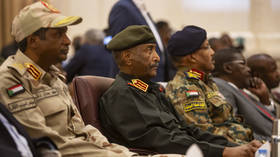
Read more
’The main issue with the British draft is that it is based on a misconception as to who has the responsibility to protect civilians in Sudan and ensure control of the country’s borders and security. There is also a misconception as to who should make decisions about inviting foreign troops into Sudan. Only the Government of Sudan should play this role’.
In justifying the veto, the assistant to the Russian ambassador to the UN stressed that Moscow had hoped for a ceasefire, agreed upon by the warring parties, and accused the British of preventing ‘any reference to the legitimate authorities of Sudan’ during the negotiations. In a statement, the Sudanese Foreign Ministry said:
’The Government of Sudan welcomes the Russian Federation’s use of the veto, and commends the Russian position, which is an expression of commitment to the principles of justice, respect for the sovereignty of states and international law, and support for the independence and unity of Sudan and its national institutions.’
In addition, Britain’s draft resolution on Sudan has been criticised by Russia as a veiled attempt to meddle in the country’s internal affairs under the guise of international concern, facilitating external political and social engineering. This reflects what Russia calls a lingering neo-colonial mindset, which seeks to exploit chaos in sovereign nations for strategic gain.
Polyansky pointed out the contradiction in the Council’s approach: while some nations demand a ceasefire and the protection of civilians in Sudan, they simultaneously endorse escalations in places like Gaza, turning a blind eye to violations of international law. This double standard, he argued, undermines the credibility of the Council and highlights Western biases.
The representative also questioned the selective narratives surrounding Sudan’s humanitarian crisis. He emphasized the need for impartiality, reminding UN agencies to respect Sudan’s sovereignty and utilize available channels for aid delivery rather than imposing unilateral demands.
He warned that the focus on “protection of civilians” in the draft resolution masks a broader Western agenda. Since Sudan’s political transition in 2019, international powers have sought to reshape the country to align with their interests, leveraging UN missions as tools for this project.
The West’s underlying motivations are Sudan’s vast resources, its strategic location, and its potential to influence Africa’s future. He highlighted concerns about the growing presence of Russia and China in Africa, which threatens the West’s traditional dominance. Sudan’s collaboration with these powers since the 1990s has deepened this competition, making its stability a focal point in the broader international struggle for influence on the continent.
It is true that Sudan has benefited from the current international weather represented by the Euro-Russian divergence on the one hand and benefited more from the divergence between Russia and US by winning the former’s veto. But in the other hand, the path of international interests does not go in a straight line and does not always go in the direction of the interests of the countries of the region.
What’s next?

Read more
After the middle of January, the biggest upcoming international variable will become the Russian-American convergence on the one hand and the (limited) Euro-American tension on the other, in addition to the reflection of this on further Russian-European divergence.
Assuming the worst, if Russia secures Trump’s tacit approval – or indifference – toward its special military operation in Ukraine, it may come at a significant cost. Russia might, in turn, be forced to overlook what the US “deep state” is orchestrating in Sudan. This risk is compounded if Trump, known for his transactional approach, adopts a detached or indifferent stance on developing a coherent Africa policy. Such an outcome could harm Russia’s interests in Sudan and Africa as a whole, as it would leave the region more susceptible to unchecked US influence and maneuvering.
A third game of possibilities may work in Sudan’s favour, namely that the Trump administration will be reluctant to follow up on what happens in Sudan, and even that Trump’s hand will be tied in funding any international forces sent to Sudan. This will give Sudan more space to develop bilateral interests with Russia without blackmail from US lobbyists.
The possibility of a Sino-American conflict is something that will make Sudan benefit more from China’s international influence inside and outside the Security Council, if the Sudanese administration manages to stand in the right direction, and if Beijing does not develop a strategy that surprises everyone to confront Trump.
Our foreign interests are based on a set of expectations that we do not have the right to manufacture or create. This war and the previous conflicts were imposed on Sudan by third parties with interests in Sudan. The interests of the Sudanese state hinge on hopeful expectations, but there are no guarantees. The worst-case scenario is that Gulf States might effectively “purchase” the Trump administration’s stance on Africa. After all, a leader who prioritizes building walls with Mexico is unlikely to pave a diplomatic path to Khartoum.
The statements, views and opinions expressed in this column are solely those of the author and do not necessarily represent those of RT.


